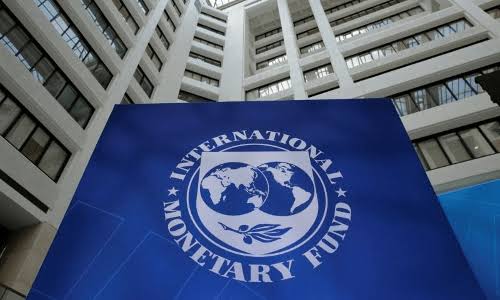News Investigators/ The International Monetary Fund (IMF) has urged the Nigerian government to enhance food security and reduce fragility as part of efforts to improve the country’s growth outlook.
This recommendation is contained in a statement released following the conclusion of the IMF Executive Board’s 2025 Article IV Consultation with Nigeria.
A copy of the statement was obtained by the News Agency of Nigeria (NAN) in Abuja on Wednesday.
The Board highlighted key priorities for the government, including addressing security challenges, cutting bureaucratic red tape, improving agricultural productivity, bridging infrastructure gaps, particularly in electricity, investing in health and education, and strengthening resilience to climate-related shocks.
Board members acknowledged the successful implementation of significant reforms over the past two years and commended the resulting improvements in macroeconomic stability and resilience.
However, they noted that the gains had yet to benefit all Nigerians and warned of rising economic uncertainty and downside risks.
“Downside risks have increased with heightened global uncertainty.
“A further decline in oil prices or an increase in financing costs would adversely affect growth, fiscal and external positions, undermine financial stability, and exacerbate exchange rate pressures.
“A deterioration of security could also impact growth and worsen food insecurity,” the directors said.
To mitigate these risks, the board emphasised the need for agile policymaking to safeguard and enhance macroeconomic stability, create conditions conducive to growth, and reduce poverty.
The directors also stressed the importance of removing structural barriers to private credit in order to support economic expansion.
The IMF Board supported the Central Bank of Nigeria’s (CBN) continued tight monetary policy stance, saying it should be maintained until disinflation becomes firmly established.
They welcomed the end of deficit monetisation and ongoing efforts to improve central bank governance, laying the groundwork for effective inflation targeting.
The directors also lauded steps taken to rebuild reserves and restore confidence in the financial markets, along with recent reforms in the foreign exchange market that enhance price discovery and liquidity.
They called for a strong FX intervention framework to limit excessive volatility, noting that the exchange rate remained a crucial shock absorber.
Furthermore, they endorsed the gradual phasing out of existing capital flow management measures in a well-sequenced and timely manner.
On fiscal policy, the board advocated a neutral stance aimed at preserving macroeconomic stability, while prioritising growth-enhancing investments and expanding social protection through accelerated cash transfers to vulnerable populations.
They commended the advancement of Nigeria’s tax reform bill, describing it as a vital step toward boosting revenue mobilisation, enabling development spending, and maintaining debt sustainability.
The board also noted ongoing efforts to strengthen the banking sector, including raising minimum capital requirements and promoting financial inclusion and capital market development.
The directors called for robust, risk-based supervision of the mortgage, consumer lending, fintech, and crypto sectors.
They also acknowledged progress in improving Nigeria’s Anti-Money Laundering (AML) and Counter-Terrorist Financing (CFT) framework, while stressing the importance of resolving outstanding issues to facilitate the country’s removal from the Financial Action Task Force (FATF) grey list.
Lastly, the IMF pledged continued capacity development support and underscored the critical need to enhance data quality to support evidence-based policymaking.
NAN

